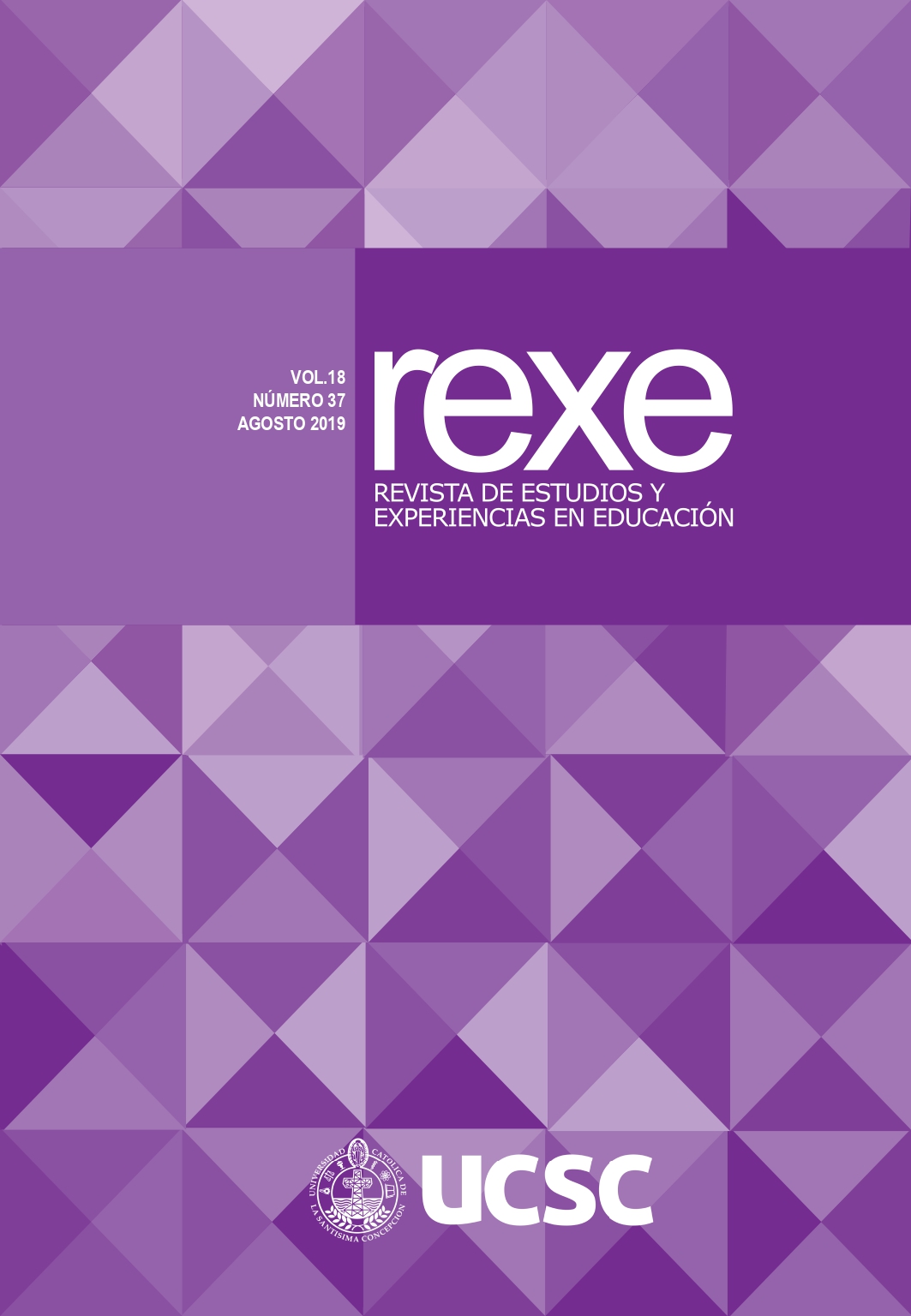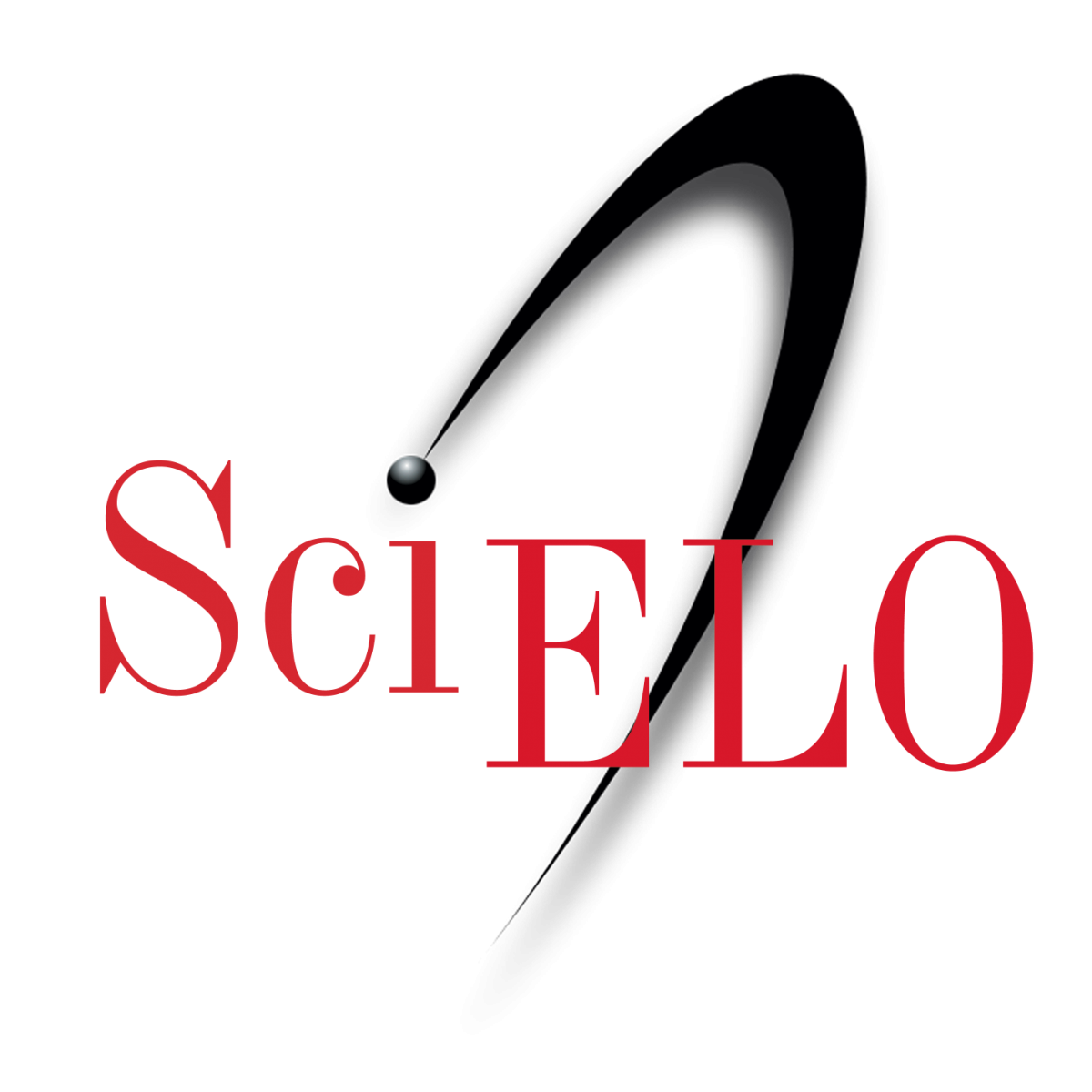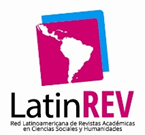Fatores influenciadores do desempenho de estudantes portugueses, singapurenses, holandeses, espanhóis e brasileiros em Literacia Matemática no PISA: Revisão Integrativa
DOI:
https://doi.org/10.21703/rexe.20191837dapiedade7Abstract
A presente revisao integrativa teve como objetivo conhecer os principais fatores influenciadores do desempenho de estudantes portugueses, singapurenses, holandeses, espanhois e brasileiros em Literacia Matematica nas edicoes do PISA, de 2000 a 2012, de acordo com a literatura publicada. Emergiram dos estudos cinco fatores: sistema educativo, contexto socioeconômico das familias, caracteristicas das escolas e caracteristicas dos estudantes, e uso das tecnologias da informacao e comunicacao. Esta revisao integrativa evidencia que ha uma multiplicidade de fatores complexos e intimamente interligados que afetam o desempenho de estudantes no PISA. Tambem aponta para uma lacuna significativa de estudos sobre o assunto, o que torna necessário um maior investimento em investigacoes nesta area.
PALAVRAS-CHAVE. PISA; literacia matematica; desempenho, sistema educativo.
Doi: 10.21703/rexe.20191837dapiedade7
Downloads
References
Afonso, N., & Costa, E. (2009). A influencia do Programme for
International Student Assessment (PISA) na decisao politica em Portugal: o caso das politicas educativas do XVII Governo Constitucional Portugues. Revista de Ciências da Educação, 10, 53–63. Retrieved from http://repositorio.ul.pt/handle/10451/5667.
Aguiar, G. da S., & Ortigao, M. I. R. (2012). Letramento em Matematica: um estudo a partir dos dados do PISA 2003. Bolema: Boletim de Educação Matemática, 26(42a), 1–22. https://doi.org/10.1590/S0103-636X2012000100002.
Albu, G. (2015). Pre-primary Education Teachers and Their Values in the Context of Current Education. Case Study. Procedia - Social and Behavioral Sciences, 180, 477–483. Doi: https://doi.org/10.1016/j.sbspro.2015.02.147.
Anderson, J. O., Lin, H.-S., Treagust, D. F., Ross, S. P., & Yore, L. D. (2007). Using large-scale assessment datasets for research in science and mathematics education: Programme for International Student Assessment (PISA). International Journal of Science and Mathematics Education, 5(4), 591–614. Doi: https://doi.org/10.1007/s10763-007-9090-y.
Areepattamannil, S. (2014a). Are learning strategies linked to academic performance among adolescents in two states in India? A tobit regression analysis. The Journal of General Psychology, 141(4), 408–424. Doi: https://doi.org/10.1080/00221309.2014.957637.
Areepattamannil, S. (2014b). International note: what factors are associated with reading, mathematics, and science literacy of Indian adolescents? A multilevel examination. Journal of Adolescence, 37(4), 367–372. Doi: https://doi.org/10.1016/j.adolescence.2014.02.007
Bakan Kalaycıoğlu, D. (2015). The Influence of Socioeconomic Status, Self-efficacy, and Anxiety on Mathematics Achievement in England, Greece, Hong Kong, the Netherlands, Turkey, and the USA. Educational Sciences: Theory & Practice, 15(5), 1391–1401.Doi: https://doi.org/10.12738/estp.2015.5.2731
Belot, M., & Vandenberghe, V. (2011). Evaluating the ‘threat’ effects of grade repetition: exploiting the 2001 reform by the French-speaking community of Belgium. Education Economics, 22(1), 73–89. Doi: https://doi.org/10.1080/09645292.2011.607266.
Bray, M. (2008). As explicacoes numa perspetiva comparada: implicacoes no trabalho dos professores e no funcionamento das escolas. In J. A. Costa, A. Neto Mendes, & A. Ventura (Eds.), Xplika: investigação sobre o mercado das explicações (pp. 11–26). Aveiro: Universidade de Aveiro.
Bray, M. (2009). L’ombre du système éducatif: quel soutien scolaire privé, quelles politiques publiques? Paris: UNESCO, Institut international de planification de l’education (IIPE). Retrieved from http://www.iiep.unesco.org/fileadmin/user_upload/Info_Services_Publications/pdf/2011/Bray_Systeme_educatif.pdf.
Bray, M. (2013a). Beneficios e tensoes da educacao na sombra: perspetivas comparativas sobre o papel e o impacto das explicacoes na vida dos estudantes de Hong Kong. In J. A. Costa, A. Neto Mendes, & A. Ventura (Eds.), Xplika internacional: panorâmica sobre o mercado das explicações (pp. 117–138). Aveiro: UA Editora.
Bray, M. (2013b). Shadow education: Comparative perspectives on the expansion and implications of private supplementary tutoring. Procedia - Social and Behavioral Sciences, 77, 412– 420. Doi: https://doi.org/10.1016/j.sbspro.2013.03.096.
Bray, M. (2014). The impact of shadow education on student academic achievement: Why the research is inconclusive and what can be done about it. Asia Pacific Education Review, 15(3), 381–389. Doi: https://doi.org/10.1007/s12564-014-9326-9.
Buchwald, F., Fleischer, J., & Leutner, D. (2015). A field experimental study of analytical problem solving competence—Investigating effects of training and transfer. Thinking Skills and Creativity, 18, 18–31. Doi: https://doi.org/10.1016/j.tsc.2015.04.009.
Burger, K. (2016). Intergenerational transmission of education in Europe: Do more comprehensive education systems reduce social gradients in student achievement? Research in Social Stratification and Mobility, 44, 54–67. Doi: https://doi.org/10.1016/j.rssm.2016.02.002.
Bybee, R., McCrae, B., & Laurie, R. (2009). PISA 2006: An assessment of scientific literacy. Journal of Research in Science Teaching, 46(8), 865–883.Doi: https://doi.org/10.1002/tea.20333.
Bybee, R. W. (2008). Scientific literacy, environmental issues, and PISA 2006: The 2008 Paul FBrandwein lecture. Journal of Science Education and Technology, 17(6), 566–585. Doi: https://doi.org/10.1007/s10956-008-9124-4.
Carvalho, L. M. (2009). Governando a educacao pelo espelho do perito: uma analise do PISA como instrumento de regulacao. Educação & Sociedade, 30(109), 1009–1036.Doi: https://doi.org/10.1590/S0101-73302009000400005.
Carvalho, L. M., & Costa, E. (2014). Seeing education with one’s own eyes and through PISA lenses: Considerations of the reception of PISA in european countries. Discourse: Studies in the Cultural Politics of Education, 1–9. Doi: https://doi.org/10.1080/01596306.2013.871449.
Cheema, J. R., & Kitsantas, A. (2013). Influences of disciplinary classroom climate on high school student self-efficacy and mathematics achievement: A look at gender and racial–ethnic differences. International Journal of Science and Mathematics Education, 12(5), 1261–1279. Doi:https://doi.org/10.1007/s10763-013-9454-4.
Conboy, J. (2011). Retention and science performance in Portugal as evidenced by PISA. Procedia - Social and Behavioral Sciences, 12, 311–321. Doi: https://doi.org/10.1016/j.sbspro.2011.02.040.
Cordero-Ferrera, J., Crespo-Cebada, E., & Pedraja-Chaparro, F. (2013). Rendimiento educativo y determinantes segun PISA: Una revision de la literatura en Espana. Revista de Educación, (362), 273–297. Doi: https://doi.org/10.4438/1988-592X-RE-2011-362-161.
Cordero-Ferrera, J., Crespo-Cebada, E., Pedraja-Chaparro, F., & Gonzalez, D. S. (2011). Exploring educational efficiency divergences across Spanish regions in PISA 2006. Revista de Economía Aplicada. Retrieved from http://dialnet.unirioja.es/servlet/articulo?codigo=3804264.
Cordero-Ferrera, J., Crespo-Cebada, E., & Santin-Gonzalez, D. (2010). Factors affecting educational attainment: evidence from Spanish PISA 2006 Results. Regional and Sectoral Economics Studies, 10(3), 55–76. Retrieved from http://www.researchgate.net/profile/Daniel_Santin/publication/227410148_FACTORS_AFFECTING_EDUCATIONAL_ATTAINMENT_EVIDENCE_FROM_SPANISH_PISA_2006_RESULTS/links/02e7e51e68d602b83a000000.pdf
Cornelisz, I. (2013). Relative Private School Effectiveness in the Netherlands: A Reexamination of PISA 2006 and 2009 data. Procedia Economics and Finance, 5, 192–201. Doi: https://doi.org/10.1016/S2212-5671(13)00025-7.
Costa, J. A., Neto Mendes, A., & Ventura, A. (2013). Xplika internacional: panorâmica sobre o mercado das explicações. Aveiro: UA Editora.
Costa, J. A., Ventura, A., & Neto Mendes, A. (2013). Lisboa, Seul, Brasilia e Otava: caracterização do fenomeno das explicacoes na perspetiva dos alunos. In J. A. Costa, A. Neto Mendes, & A. Ventura (Eds.), Xplika internacional: panorâmica sobre o mercado das explicações (pp. 95–114). Aveiro: UA Editora.
Crahay, M., & Baye, A. (2013). Existem escolas justas e eficazes? Esboco de resposta baseado no PISA 2009. Cadernos de Pesquisa, 43(150), 858–883. Doi: https://doi.org/10.1590/S0100-15742013000300007.
Crespo-Cebada, E., Pedraja-Chaparro, F., & Santin-Gonzalez, D. (2013). Does school ownership matter? An unbiased efficiency comparison for regions of Spain. Journal of Productivity Analysis, 41(1), 153–172. Doi: https://doi.org/10.1007/s11123-013-0338-y.
Curi, A. Z., & Menezes-Filho, N. A. (2009). A relacao entre educacao pre-primaria, salarios, escolaridade
e proficiencia escolar no Brasil. Estudos Econômicos, 39(4), 811–850. Doi: https://doi.org/10.1590/S0101-41612009000400005.
Del Porto, F., & Ferreira, C. (2007). Os fatores socioeconomicos e culturais associados ao desempenho
dos alunos no PISA 2003 (Brasil, Mexico, Espanha e Portugal). XIII CONGRESSO BRASILEIRO DE SOCIOLOGIA, 1–19. Retrieved from http://www.sbsociologia.com.br/portal/index.php?option=com_docman&task=doc_download&gid=441&Itemid=170.
Demir, İ., Kılıc, S., & Unal, H. (2010). Effects of students’ and schools’ characteristics on mathematics achievement: findings from PISA 2006. Procedia - Social and Behavioral Sciences, 2(2), 3099–3103. Doi: https://doi.org/10.1016/j.sbspro.2010.03.472.
Denny, K., & Oppedisano, V. (2013). The surprising effect of larger class sizes: Evidence using two identification strategies. Labour Economics, 23, 57–65. Doi: https://doi.org/10.1016/j.labeco.2013.04.004.
Dobbins, M., & Martens, K. (2012). Towards an education approach a la finlandaise ? French education policy after PISA. Journal of Education Policy, 27(1), 23–43.Doi: https://doi.org/10.1080/02680939.2011.622413.
Dolin, J., & Krogh, L. B. (2010). The relevance and consequences of PISA science in a Danish context. International Journal of Science and Mathematics Education, 8(3), 565–592. Doi: https://doi.org/10.1007/s10763-010-9207-6.
Eijkelhof, H. M. C., Kordes, J. H., & Savelsbergh, E. R. (2013). Implications of PISA outcomes for science curriculum reform in the Netherlands. In M. Prenzel, M. Kobarg, K. Schops, & S. Ronnebeck (Eds.), Research on PISA - Research outcomes of the PISA research conference 2009 (pp. 7–21). Dordrecht, Heidelberg, New York, London: Springer. Doi: https://doi.org/10.1007/978-94-007-4458-5.
Fernandes, D. (2008). Algumas reflexoes acerca dos saberes dos alunos em Portugal. Educação & Sociedade, 29(102), 275–296. Doi: https://doi.org/10.1590/S0101-73302008000100014.
Ferrer, F., Valiente, O., & Castel, J. L. (2010). Los resultados PISA 2006 desde la perspectiva de las desigualdades educativas: La comparacion entre comunidades autonomas en Espana. Revista Espanola de Pedagogia, 68(245), 23–48. Retrieved from http://www.scopus.com/inward/record.url?eid=2-s2.0-76349126003&partnerID=tZOtx3y1.
Fischbach, A., Keller, U., Preckel, F., & Brunner, M. (2013). PISA proficiency scores predict educational outcomes. Learning and Individual Differences, 24, 63–72. Doi: https://doi.org/10.1016/j.lindif.2012.10.012.
Fonseca, J., Valente, M. O., & Conboy, J. (2011). Student characteristics and PISA science performance: Portugal in cross-national comparison. Procedia - Social and Behavioral Sciences, 12, 322–329. Doi: https://doi.org/10.1016/j.sbspro.2011.02.041.
Forgasz, H. J., & Hill, J. C. (2012). Factors implicated in high mathematics achievement. International Journal of Science and Mathematics Education, 11(2), 481–499. Doi: https://doi. org/10.1007/s10763-012-9348-x.
French, D., Miles, K. H., & Nathan, L. (2014). The Path Forward: School Autonomy and Its Implications for the Future of Boston’s Public Schools. Boston Foundation.
Garcia-Perez, J. I., Hidalgo-Hidalgo, M., & Robles-Zurita, J. A. (2014). Does grade retention affect students’ achievement? Some evidence from Spain. Applied Economics. Retrieved from http://www.tandfonline.com/doi/abs/10.1080/00036846.2013.872761#.VPts04GsWnA.
Gilleece, L., Cosgrove, J., & Sofroniou, N. (2010). Equity in mathematics and science outcomes: characteristics associated with high and low achievement on PISA 2006 in Ireland. International Journal of Science and Mathematics Education, 8(3), 475–496. Doi: https://doi.org/10.1007/s10763-010-9199-2.
Gonzalez, M. T. G. (2006). Absentismo y abandono escolar: una situacion singular de la exclusión educativa. REICE - Revista Eletrónica Iberoamericana Sobre Calidad, Eficacia y Cambio En Educación. Retrieved from http://dialnet.unirioja.es/servlet/articulo?codigo=1368106.
Greiff, S., Holt, D. V, & Funke, J. (2013). Perspectives on problem solving in educational assessment: Analytical, interactive, and collaborative problem solving. Journal of Problem Solving, 5, 71–91. Doi: https://doi.org/10.7771/1932-6246.1153.
Guzel, C. I., & Berberoğlu, G. (2005). An analysis of the programme for international student assessment 2000 (PISA 2000) mathematical literacy data for brazilian, japanese and Norwegian students. Studies in Educational Evaluation, 31(4), 283–314. Doi: https://doi.org/10.1016/j.stueduc.2005.11.006.
Hanushek, E. A., Link, S., & Woessmann, L. (2013). Does school autonomy make sense everywhere? Panel estimates from PISA. Journal of Development Economics, 104, 212–232. Doi: https://doi.org/10.1016/j.jdeveco.2012.08.002.
Jerrim, J., & Vignoles, A. (2016). The link between East Asian ‘mastery’ teaching methods and English children’s mathematics skills. Economics of Education Review, 50, 29–44. Doi: https://doi.org/10.1016/j.econedurev.2015.11.003.
Keddie, A. (2015). School autonomy, accountability and collaboration: a critical review. Journal of Educational Administration and History, 47(1), 1–17. Doi: https://doi.org/10.1080/00220620.2015.974146.
Klein, R. (2011). Uma re-analise dos resultados do PISA: problemas de comparabilidade. Ensaio: Avaliação e Políticas Públicas Em Educação, 19(73), 717–768. Doi: https://doi.org/10.1590/S0104-40362011000500002.
Knodel, P., Martens, K., & Niemann, D. (2013). PISA as an ideational roadmap for policy change: exploring Germany and England in a comparative perspective. Globalisation, Societies and Education, 11(3), 421–441. Doi: https://doi.org/10.1080/14767724.2012.761811.
Kriegbaum, K., Jansen, M., & Spinath, B. (2015). Motivation: A predictor of PISA’s mathematical competence beyond intelligence and prior test achievement. Learning and Individual Differences, 43, 140–148. Doi: https://doi.org/10.1016/j.lindif.2015.08.026
Lee, J.-S. (2012). The effects of the teacher–student relationship and academic press on student engagement and academic performance. International Journal of Educational Research, 53, 330–340. Doi: https://doi.org/10.1016/j.ijer.2012.04.006.
Lundgren, U. P. (2011). PISA as a political instrument: One History Behind the Formulating of the PISA Programme. In M. Pereyra, H. G. Kotthoff, & R. Cowen (Eds.), PISA under examination: Changing knowledge, changing tests, and changing schools (pp. 17–30). Rotterdam, Boston, Taipei: Sense Publishers.
Martino, W., & Rezai-Rashti, G. (2013). “Gap talk” and the global rescaling of educational accountability in Canada. Journal of Education Policy, 28(5), 589–611. Doi: https://doi.org/10.1080/02680939.2013.767074.
Martins, A. M., & Silva, V. G. da. (2011). State of the art: management, school autonomy and collegial organizations (2000/2008). Cadernos de Pesquisa, 41(142), 228–245. Doi: https://doi.org/10.1590/S0100-15742011000100012.
Martins, L., & Veiga, P. (2010). Do inequalities in parents’ education play an important role in PISA students’ mathematics achievement test score disparities? Economics of Education Review, 29(6), 1016–1033. Doi: https://doi.org/10.1016/j.econedurev.2010.05.001.
Matějů, P., & Smith, M. L. (2014). Are boys that bad? Gender gaps in measured skills, grades and aspirations in Czech elementary schools. British Journal of Sociology of Education, 1–25. Doi: https://doi.org/10.1080/01425692.2013.874278.
Minxuan, Z., & Lingshuai, K. (2012, March 1). An exploration of reasons for Shanghai’s success in the OECD Program for International Student Assessment (PISA) 2009. Frontiers of Education in China. Brill. Doi: https://doi.org/10.3868/s110-001-012-0007-3.
Mostafa, T. (2013). The anatomy of inequalities in educational achievements: An international investigation using PISA data. In M. Prenzel, M. Kobarg, K. Schops, & S. Ronnebeck (Eds.), Research on PISA - Research outcomes of the PISA research conference 2009 (pp. 145–158). Dordrecht, Heidelberg, New York, London: Springer. Doi: https://doi.org/10.1007/978-94-007-4458-5.
Neto Mendes, A., Martins, M. E., Ventura, A., & Costa, J. A. (2013). Explicacoes em Lisboa, Seul, Brasilia e Otava: da especificidade dos contextos a (des)regulacao do fenomeno. In J. A. Costa, A. Neto Mendes, & A. Ventura (Eds.), Xplika internacional: panorâmica sobre o mercado das explicações (pp. 29–67). Aveiro: UA Editora.
OECD. (2003a). Literacy skills for the world of tomorrow - Further results from PISA 2000. Paris: OECD Publishing. Doi: https://doi.org/10.1787/9789264102873-en.
OECD. (2003b). Literacy skills for the world of tomorrow - Further results from PISA 2000 (Executive summary). Paris: OECD Publishing. Retrieved from http://www.oecd.org/edu/school/2960581.pdf.
OECD. (2004). Learning for tomorrow’s world - First results from PISA 2003. Paris: OECD Publishing. OECD. (2010). PISA 2009 results: What students know and can do – student performance in reading, mathematics and science (Volume I). Paris: OECD Publishing. Doi: http://dx.doi.org/10.1787/9789264091450-en.
OECD. (2011). Does participation in pre-primary education translate into better learning outcomes at school? PISA in Focus, No 1. Doi: https://doi.org/10.1787/5k9h362tpvxp-en.
OECD. (2014). PISA 2012 results: What students know and can do – student performance in mathematics, reading and science (Volume I, revised edition, february 2014). Paris: PISA, OECD Publishing. Doi: http://dx.doi.org/10.1787/9789264201118-en.
OECD. (2015). PISA, students, computers and learning: Making the connection. Paris: OECD Publishing. Doi: https://doi.org/10.1787/9789264239555-en.
OECD, & INEP. (2014). Relatório nacional PISA 2012 - resultados brasileiros. Ministério da Educação. Sao Paulo: Ministerio da Educacao. Retrieved from http://download.inep.gov.br/acoes_internacionais/pisa/resultados/2014/relatorio_nacional_pisa_2012_resultados_brasileiros.pdf.
Ozcan, Z. C. (2015). The relationship between mathematical problem-solving skills and self-regulated learning through homework behaviours, motivation, and metacognition. International Journal of Mathematical Education in Science and Technology, 47(3), 408–420. Doi: https://doi.org/10.1080/0020739X.2015.1080313.
Pereira, M. C. (2010). Desempenho educativo e igualdade de oportunidades em Portugal e na Europa: O papel da escola e a influencia da familia. Boletim Económico - Banco de Portugal, 16(4), 25–48. Retrieved from https://www.bportugal.pt/pt-PT/EstudosEconomicos/Publicacoes/BoletimEconomico/BEAnteriores/Documents/bol_inverno10_p.pdf
Pinto, J., Costa, J. A., & Silva, J. C. e. (2014). Explicacoes, escolas e sucesso educativo: reflexao em torno da educacao sombra. Indagatio Didactica, 6(4), 24–36. Retrieved from http://revistas.ua.pt/index.php/ID/article/view/3021.
Pons, X. (2011). What do we really learn from PISA? The sociology of its reception in three European countries (2001-2008)1. European Journal of Education, 46(4), 540–548. Doi: https://doi.org/10.1111/j.1465-3435.2011.01499.x.
Prenzel, M., Kobarg, M., Schops, K., & Ronnebeck, S. (Eds.). (2013). Research on PISA – Research outcomes of the PISA research conference 2009. Dordrecht, Heidelberg, New York, London: Springer. Doi: https://doi.org/10.1007/978-94-007-4458-5.
Projavi, Ferreira, A. S., & Lourenco, V. (2013). PISA 2012, Portugal - Primeiros resultados. Lisboa: ProjAVI Grupo de Projeto para Avaliação Internacional de Alunos. Retrieved from http://www.dgeec.mec.pt/np4/246/%7B$clientServletPath%7D/?newsId=371&fileName=PISA_Primeiros_Resultados_PORTUGAL.pdf.
Reilly, D. (2012). Gender, culture, and sex-typed cognitive abilities. PloS One, 7(7), e39904. https://doi.org/10.1371/journal.pone.0039904.
Silva, J. C. e. (2004). A importancia do estudo internacional PISA. Boletim Da Sociedade Portuguesa de Matemática, 51, 67–80.
Soares, S. S. D., & Nascimento, P. A. M. M. (2012). Evolucao do desempenho cognitivo dos jovens brasileiros no PISA. Cadernos de Pesquisa, 42(145), 68–87. Doi: https://doi.org/10.1590/S0100-15742012000100006.
Stacey, K., & Turner, R. (2015). The evolution and key concepts of the PISA mathematics frameworks. In K. Stacey & R. Turner (Eds.), Assessing mathematical literacy, the PISA experience (pp. 5–33). Heidelberg, New York, Dordrecht, London: Springer.
Stoet, G., & Geary, D. C. (2013). Sex differences in mathematics and reading achievement are inversely related: within- and across-nation assessment of 10 years of PISA data. PloS One, 8(3), e57988. Doi: https://doi.org/10.1371/journal.pone.0057988
Thien, L. M., & Ong, M. Y. (2015). Malaysian and Singaporean students’ affective characteristics and mathematics performance: evidence from PISA 2012. SpringerPlus, 4(1), 563. Doi: https://doi.org/10.1186/s40064-015-1358-z
Thomson, S., & Hillman, K. (2013). Success despite the odds? Outcomes for low-performing students in Australia. In M. Prenzel, M. Kobarg, K. Schops, & S. Ronnebeck (Eds.), Research on PISA - Research outcomes of the PISA research conference 2009 (pp. 181–198). Dordrecht, Heidelberg, New York, London: Springer. Doi: https://doi.org/10.1007/978-94-007-4458-5.
Vandenberghe, V., & Robin, S. (2004). Evaluating the effectiveness of private education across countries: a comparison of methods. Labour Economics, 11(4), 487–506. Doi: https://doi.org/10.1016/j.labeco.2004.02.007.
Whittemore, R., & Knafl, K. (2005). The integrative review: updated methodology. Journal of Advanced Nursing, 52(5), 546–553. Doi: https://doi.org/10.1111/j.1365-2648.2005.03621.x.
You, Y., & Morris, P. (2015). Imagining school autonomy in high-performing education systems: East Asia as a source of policy referencing in England. Compare: A Journal of Comparative and International Education, 1–24. Doi: https://doi.org/10.1080/03057925.2015.1080115.
Downloads
Published
Issue
Section
License
Open Access Policy
This journal provides immediate open access to its content, based on the principle that offering the public free access to research fosters greater global knowledge exchange.
License
The REXE Journal, “Journal of Studies and Experiences in Education,” published by the Faculty of Education at the Universidad Católica de la Santísima Concepción, is distributed under a License. Creative Commons Atribución 4.0 Internacional.






